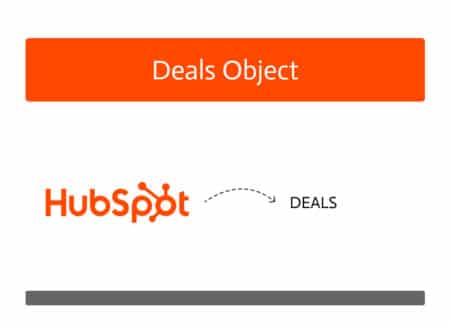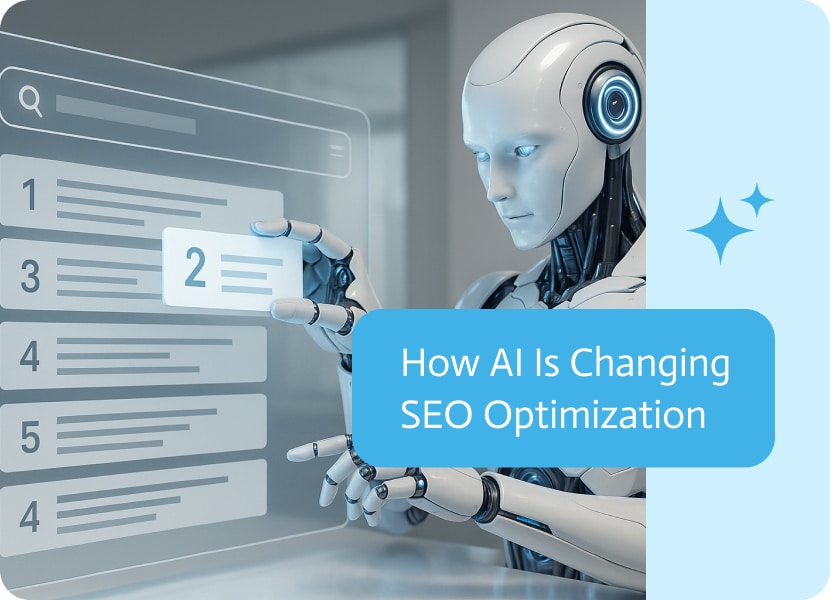
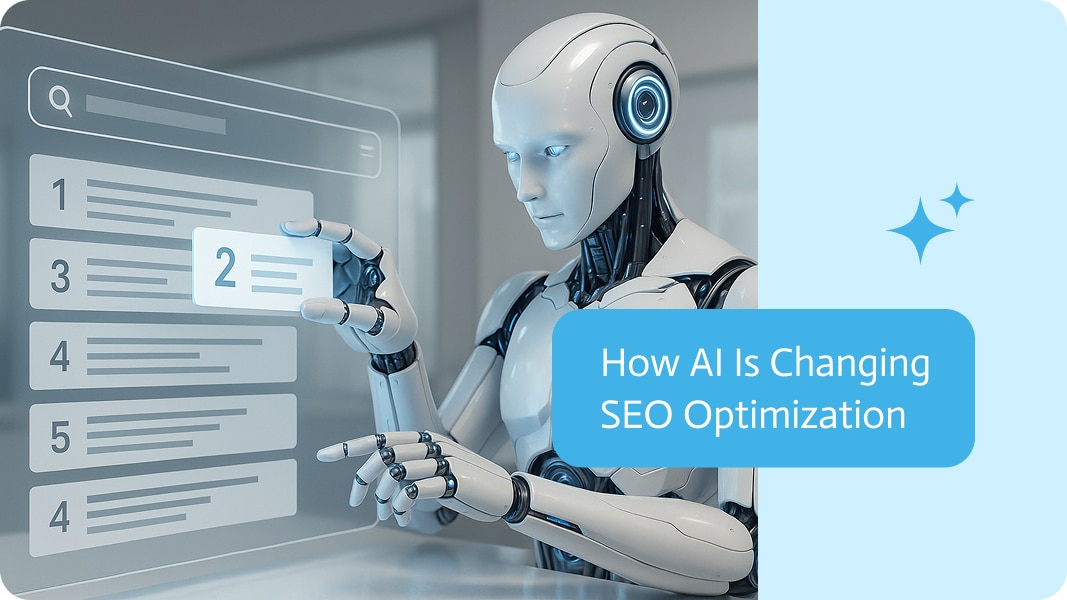
How AI Changing SEO Optimization
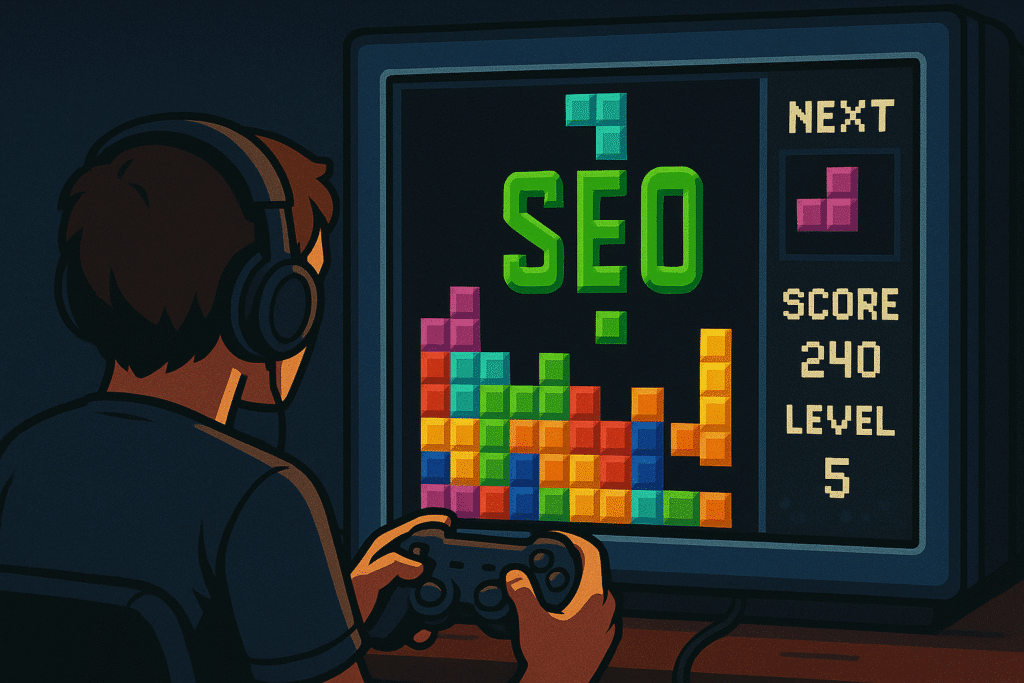
If you’ve spent hours tweaking blog titles, rewriting meta descriptions, or stuffing keywords into content—only to see your SEO rankings barely budge—you’re not alone. SEO can feel like an endless game of trial and error, and it’s easy to get overwhelmed by ever-changing algorithms. But here’s the good news: AI SEO optimization is making the process a lot smarter and a lot faster. Whether you’re a small business owner, blogger, or digital marketer, AI-powered tools are transforming how we research keywords, write content, and analyze performance.
Let’s break it all down—from what AI SEO tools actually do to which ones are worth your time (and budget), plus a look at how Noca AI fits into the future of SEO automation.
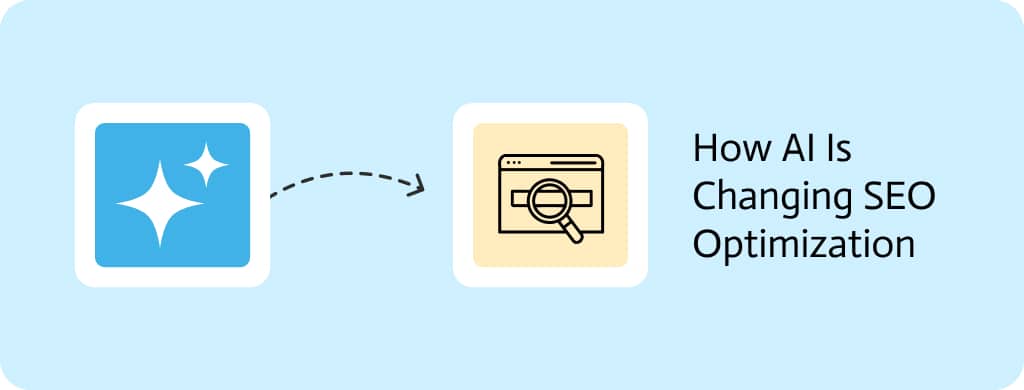
What is SEO?
Search Engine Optimization (SEO) is the means of improving a website’s visibility on search engines like Google.By enhancing content, keywords, and site structure, SEO helps websites rank higher in search results. When your website has better SEO, the more unpaid traffic the site will attract.
What Is AI for SEO Optimization?
AI for SEO uses machine learning and natural language processing (NLP) to automate and improve tasks like:
- Keyword research
- Competitor analysis
- Content creation and optimization
- Technical SEO audits
- Trend prediction
AI powered platforms provide real time recommendations, create optimized content, and identify technical SEO issues before they affect rankings.
3 AI SEO Tools Worth Checking Out
1. Surfer SEO
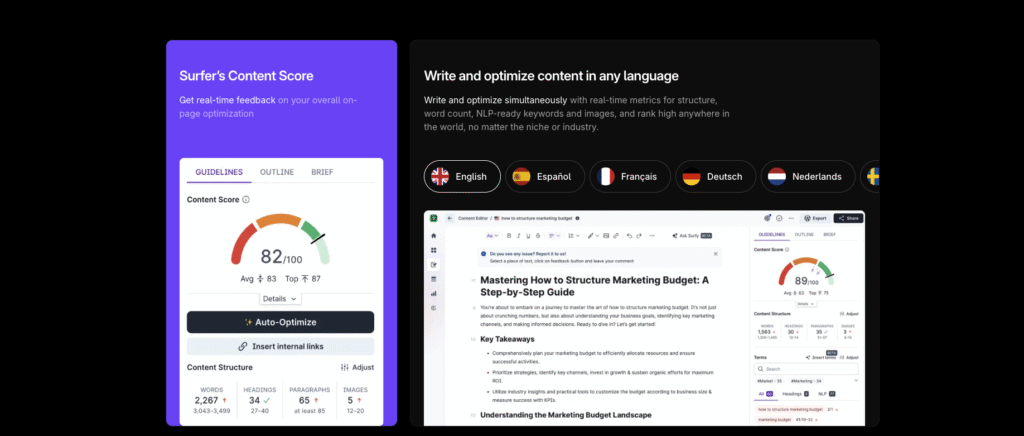
What it does:
You can plan, write and optimize content that ranks with the aid of Surfer SEO. It’s content editor uses natural language processing (NLP) data from high performing pages to score your drafts in real time.
Key Features:
- AI-driven keyword suggestions
- Real-time content scoring
- SERP analyzer
- Content audits
- No built-in writing assistant (requires integration with Jasper or other AI writers)
- Can get pricey for small teams
- Easy to use for writers and marketers
- Strong competitor analysis
- Great for scaling blog content
Pricing:
Starts at $89/month (Basic Plan)
2. SearchAtlas
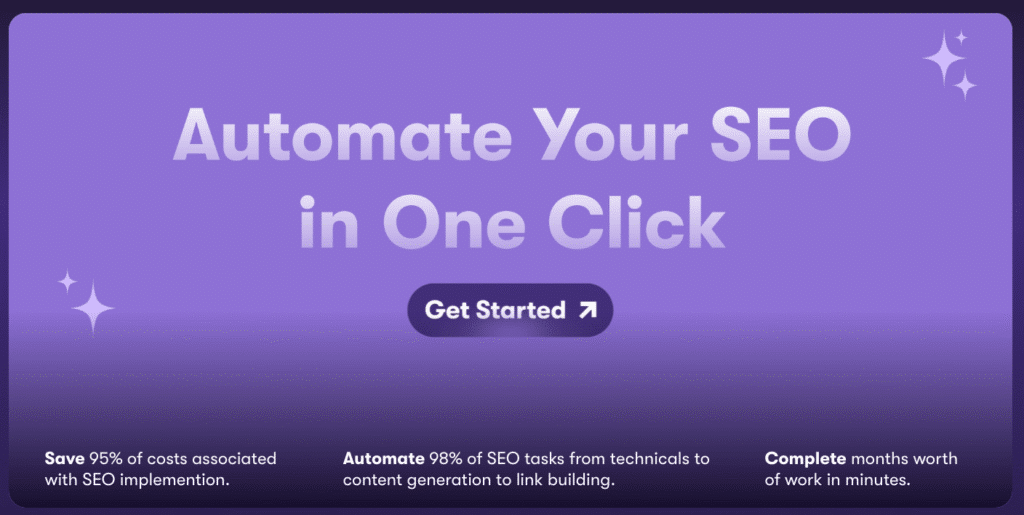
What it does:
Keyword research, an AI content writer, technical SEO tools, and an automated assistant known as OTTO SEO are all included in Search Atlas all inclusive SEO platform.
Key Features:
- AI content writing with built-in optimization
- Site audit reports
- Competitor keyword tracking
- Smart suggestions via OTTO SEO
- UI can feel cluttered for beginners
- Some features are better suited for agencies than solo users
- Strong all-in-one platform
- Affordable compared to enterprise-level tools
- Constantly updated with new features
Pricing:
Plans start at $49/month, with a free trial available
3. ClickUp
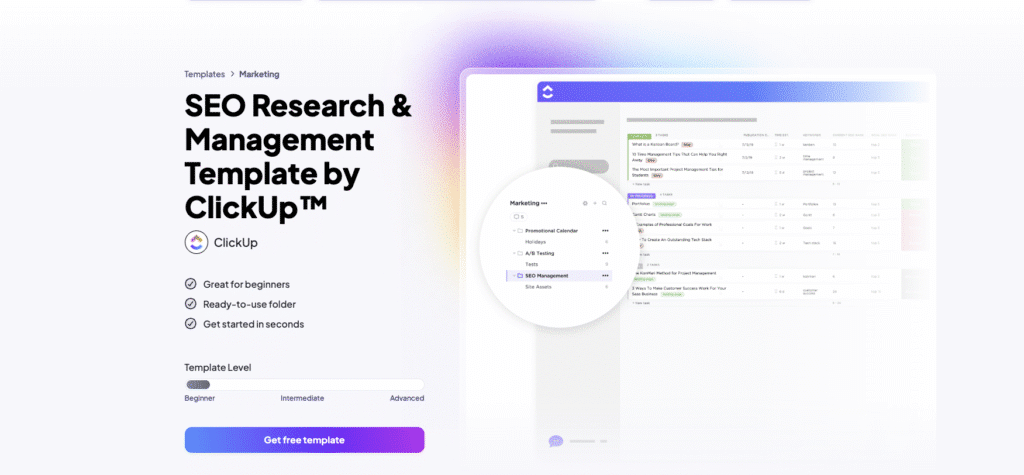
What it does:
Although ClickUp is primarily known as a productivity platform, its integrated AI tools can be utilized for keyword brainstorming, SEO outlines, and content production. All within your project management process.
Key Features:
- AI content generation with SEO prompts
- Integration with Google Docs and Chrome extensions
- Project templates for SEO workflows
- SEO tools are more lightweight compared to dedicated platforms
- Requires setup and team onboarding
- Centralized workspace for teams
- Affordable for small businesses
- Helps with both SEO and project planning
Pricing:
Free plan available; paid plans from $5 month
Pros and Cons of Using AI for SEO
- Learning curve: Some platforms take time to set up and learning
- Over Reliance on AI: Tools may lack the creativity and nuance a human brings.
- Editing required: AI-generated content still needs review for tone, accuracy, and clarity.
- Cost: Premium features can add up, especially for solo creators or small businesses.
- Time-saving: AI eliminates repetitive tasks like keyword clustering and content scoring.
- Scalable: You can optimize dozens of pages without hiring a full SEO team.
- Data-backed decisions: AI uses real-time data and NLP analysis to guide your strategy.
- Content quality: Many tools offer content suggestions that align with Google’s best practices.
Where Does Noca AI Fit In?
If you’re thinking about scaling SEO with automation, you’ll also want to consider how everything connects—from keyword research, blog publishing to analytics tracking. That’s where an iPaaS (Integration Platform as a Service) like Noca AI steps in.
Noca AI helps automate SEO workflows by connecting AI tools to the platforms you already use (Google Sheets, CMS platforms, email, analytics, and more). Instead of juggling ten tabs and manual uploads, you can build smart, no-code workflows that streamline content creation, optimization, and reporting.
Unlike other iPaaS tools built for developers, Noca AI is AI-first and NLP-friendly, meaning it’s designed for creators, marketers, and teams that want to automate without coding. Whether you’re pushing AI-optimized content to WordPress or automating SEO reports in Notion, Noca helps keep everything running behind the scenes.
Final Thoughts
Within SEO, AI is becoming necessary rather than optional. AI tools provide you with a significant advantage, from creating optimized blog posts more efficiently to identify ranking opportunities you may have overlooked.
The correct tool can save time and produce results, whether you’re using ClickUp to manage the entire workflow, Surfer SEO to write more intelligently, or Search Atlas ti monitor competitors. When you are prepared tp put everything together? At that point, you should integrate automation using Noca AI. Because intelligent SEO is about systems,not just content.


